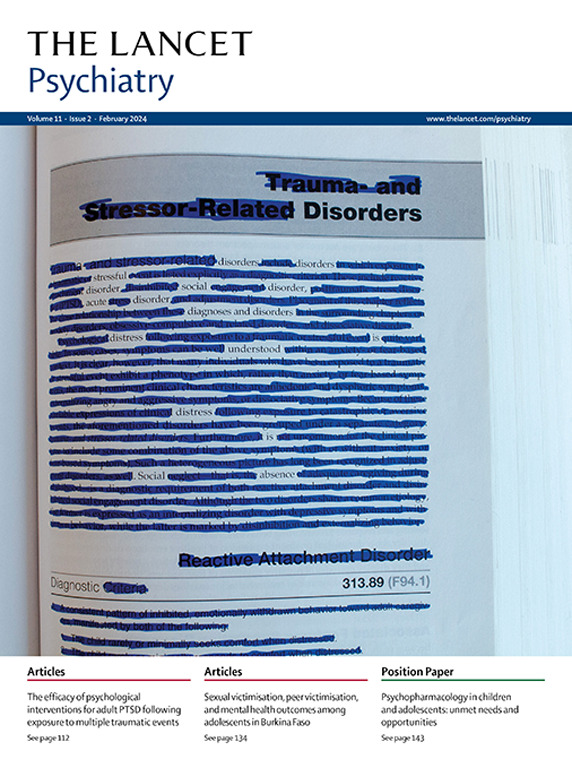Priorities for addressing mental health conditions and substance use disorders in prisons in sub-Saharan Africa: expert consensus from a Delphi panel
IF 30.8
1区 医学
Q1 PSYCHIATRY
引用次数: 0
Abstract
People who are incarcerated in Africa are not a focus of global mental health research, and incarceration is absent from many international mental health guidelines. Given the dearth of knowledge and services, priorities for research and practice should be established. The Delphi method was used to identify priority challenges related to mental health and substance use disorders among people who are incarcerated in sub-Saharan Africa. Experts in the field completed four iterative electronic surveys. The first survey was an open-ended question about priorities. In subsequent surveys participants used a Likert scale to rate the importance of each priority. 97 experts from 27 countries (20 in sub-Saharan Africa) completed the first survey (64% of those targeted). The 38 priority challenges fell into ten thematic areas: pathways for care during incarceration; the health-care workforce; alternatives to incarceration; the specific needs of women; acute conditions; involvement of non-health-care staff; policy; infrastructure and carceral conditions conditions; re-entry into the community; and people awaiting trial. These priority challenges can guide the efforts of practitioners, policy makers, and researchers to address mental health conditions and substance use disorders among people in prisons in sub-Saharan Africa. Investment in the health-care workforce, policies, and prison infrastructure, as well as developing non-carceral solutions, are needed to support behavioural health in people who are incarcerated.解决撒哈拉以南非洲监狱精神健康状况和药物使用障碍的优先事项:德尔菲小组专家共识
非洲被监禁的人不是全球心理健康研究的重点,许多国际心理健康指南中都没有监禁。鉴于缺乏知识和服务,应确定研究和实践的优先次序。使用德尔菲法确定撒哈拉以南非洲被监禁人员中与精神健康和物质使用障碍有关的优先挑战。该领域的专家完成了四次迭代电子调查。第一项调查是一个关于优先事项的开放式问题。在随后的调查中,参与者使用李克特量表来评估每个优先事项的重要性。来自27个国家(20个在撒哈拉以南非洲)的97名专家完成了第一次调查(占目标调查对象的64%)。38项优先挑战分为10个主题领域:监禁期间的护理途径;保健工作人员;替代监禁;妇女的特殊需要;急性条件;非保健工作人员的参与;政策;基础设施和医疗条件;重返社会;还有等待审判的人。这些优先挑战可以指导从业人员、决策者和研究人员努力解决撒哈拉以南非洲监狱中囚犯的精神健康状况和药物使用障碍问题。需要对卫生保健人力、政策和监狱基础设施进行投资,并制定非监禁解决方案,以支持被监禁者的行为健康。
本文章由计算机程序翻译,如有差异,请以英文原文为准。
求助全文
约1分钟内获得全文
求助全文
来源期刊

Lancet Psychiatry
PSYCHIATRY-
CiteScore
58.30
自引率
0.90%
发文量
0
期刊介绍:
The Lancet Psychiatry is a globally renowned and trusted resource for groundbreaking research in the field of psychiatry. We specialize in publishing original studies that contribute to transforming and shedding light on important aspects of psychiatric practice. Our comprehensive coverage extends to diverse topics including psychopharmacology, psychotherapy, and psychosocial approaches that address psychiatric disorders throughout the lifespan. We aim to channel innovative treatments and examine the biological research that forms the foundation of such advancements. Our journal also explores novel service delivery methods and promotes fresh perspectives on mental illness, emphasizing the significant contributions of social psychiatry.
 求助内容:
求助内容: 应助结果提醒方式:
应助结果提醒方式:


